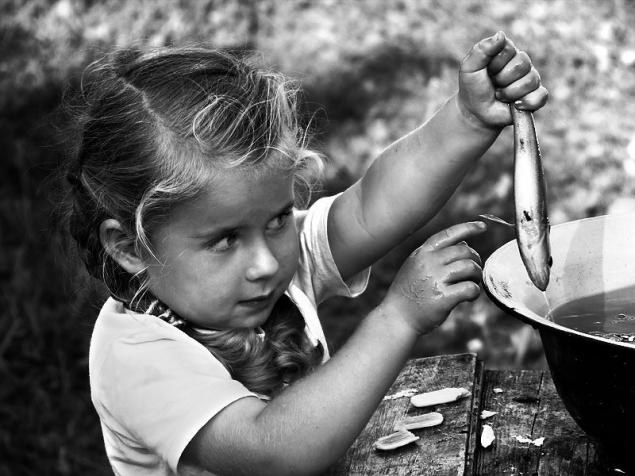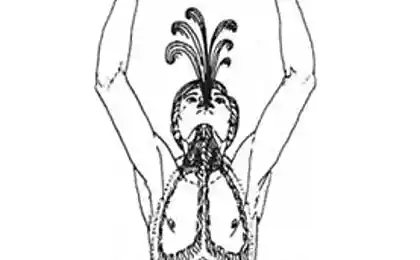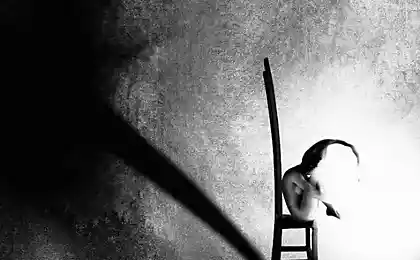432
Guilt and responsibility: experience the difference
Wine. Unique way of human exposure. formed easily and simply. from the very childhood. "You're to blame". everyone has heard these words thousands of times.

Guilt causes anger, resentment, a desire to prove his Innocence in any way, in any way. Wine literally craves Punishment. And when the Punishment comes — then there comes a Relief. and the saddest thing is that in addition to facilitating're not. You can have nothing to do. Punishment is enough. Sometimes a person punishes himself. And this punishment is even stronger, tougher, which appointed him other. then guilty is almost a national hero: that's how cool he was punished!
People raised on Guilt masterfully know how to make excuses. No less masterly are able to find their own punishment. And they absolutely no matter what the consequences of the act remained the same., the pain left pain. The main thing for them is already done — the Punishment received.
To expect from such a person that he will fix the situation, that will at least think about how to fix it — absolutely useless. For him, the cycle has been completed. . Any remark in his address to the people brought up on Guilt, sees it as an Accusation. Not wanting to understand What happened, how it happened, what can be done, but only as an ACCUSATION. So when speaking with this person very often there is a feeling of powerlessness to explain anything: if he hears you. A favorite formula is to blame — HE STARTED it, HE IS the reason I did it. well, for example, he scared the shit out of something. I haven't been able to tell him the truth.
But the highest skill of these people, as adults, reach the ability to blame the other
The responsibility is completely different. This meeting with the result of your actions. "Yes, I did, I and no one else.
And that I have to fix the consequences of my actions to change the result. To the extent possible." To look for other options to repair the damage — first and foremost, moral.
It is very difficult to bring in people responsible for their actions, for assigned tasks, for himself, for his life, for the lives of those who are close and whom he loves. Because there are responsible. I'm responsible for this — and it means that I'm not going to point fingers, I will not wait for punishment — I'm going to analyze WHY it happened, and I will think about WHAT you need to do to score was the least traumatic.
The child scattered and removed the toy. To bring a sense of responsibility enough to tell him so — not good and then insist that he is a toy was removed. And in any case not to remove it. On a thrown toy may someone occur, it can break and the toys will be no more. This is the result of facing the child. Not "your own fault", and "see what happened? let's think what to do next time this was not.
From blame two opposite feelings: fear of punishment and desire to be punished.Fear of punishment forces the person to search for someone else to blame, shift the blame on the other, to justify, to resent, to lie.Desire the punishment due to the fact that AFTER the punishment the man feels himself completely free from everything, especially from guilt. now you can have nothing to do — the main thing is already made: the punishment received. And now you can continue the relationship, to move on, not burdening themselves with thoughts about the incident. and such people are very surprised by the demand after the punishment as something to fix, to do things differently: after all the Punishment received? Well you have something you want from me?
The person responsible for the notion of Punishment, of course, of course. But it is unclear what it can be punished if he is already doing everything to rectify the situation. He took responsibility, he DOES, to anybody nothing is shifting — and then the punishment.
Responsible upset with the result and starts to do something. Blame offended, angry and NOT DOING ANYTHING.
Criticism, Blame it perceives as an Accusation. Responsible — as a signal that you NEED SOMETHING to DO... posted
Author: Irene Musinsky
P. S. And remember, just changing your mind — together we change the world! ©
Source: psy-practice.com/publications/psikhicheskoe-zdorove/vina_i_otvetstvennost_oshchutite_raznitsu/

Guilt causes anger, resentment, a desire to prove his Innocence in any way, in any way. Wine literally craves Punishment. And when the Punishment comes — then there comes a Relief. and the saddest thing is that in addition to facilitating're not. You can have nothing to do. Punishment is enough. Sometimes a person punishes himself. And this punishment is even stronger, tougher, which appointed him other. then guilty is almost a national hero: that's how cool he was punished!
People raised on Guilt masterfully know how to make excuses. No less masterly are able to find their own punishment. And they absolutely no matter what the consequences of the act remained the same., the pain left pain. The main thing for them is already done — the Punishment received.
To expect from such a person that he will fix the situation, that will at least think about how to fix it — absolutely useless. For him, the cycle has been completed. . Any remark in his address to the people brought up on Guilt, sees it as an Accusation. Not wanting to understand What happened, how it happened, what can be done, but only as an ACCUSATION. So when speaking with this person very often there is a feeling of powerlessness to explain anything: if he hears you. A favorite formula is to blame — HE STARTED it, HE IS the reason I did it. well, for example, he scared the shit out of something. I haven't been able to tell him the truth.
But the highest skill of these people, as adults, reach the ability to blame the other
The responsibility is completely different. This meeting with the result of your actions. "Yes, I did, I and no one else.
And that I have to fix the consequences of my actions to change the result. To the extent possible." To look for other options to repair the damage — first and foremost, moral.
It is very difficult to bring in people responsible for their actions, for assigned tasks, for himself, for his life, for the lives of those who are close and whom he loves. Because there are responsible. I'm responsible for this — and it means that I'm not going to point fingers, I will not wait for punishment — I'm going to analyze WHY it happened, and I will think about WHAT you need to do to score was the least traumatic.
The child scattered and removed the toy. To bring a sense of responsibility enough to tell him so — not good and then insist that he is a toy was removed. And in any case not to remove it. On a thrown toy may someone occur, it can break and the toys will be no more. This is the result of facing the child. Not "your own fault", and "see what happened? let's think what to do next time this was not.
From blame two opposite feelings: fear of punishment and desire to be punished.Fear of punishment forces the person to search for someone else to blame, shift the blame on the other, to justify, to resent, to lie.Desire the punishment due to the fact that AFTER the punishment the man feels himself completely free from everything, especially from guilt. now you can have nothing to do — the main thing is already made: the punishment received. And now you can continue the relationship, to move on, not burdening themselves with thoughts about the incident. and such people are very surprised by the demand after the punishment as something to fix, to do things differently: after all the Punishment received? Well you have something you want from me?
The person responsible for the notion of Punishment, of course, of course. But it is unclear what it can be punished if he is already doing everything to rectify the situation. He took responsibility, he DOES, to anybody nothing is shifting — and then the punishment.
Responsible upset with the result and starts to do something. Blame offended, angry and NOT DOING ANYTHING.
Criticism, Blame it perceives as an Accusation. Responsible — as a signal that you NEED SOMETHING to DO... posted
Author: Irene Musinsky
P. S. And remember, just changing your mind — together we change the world! ©
Source: psy-practice.com/publications/psikhicheskoe-zdorove/vina_i_otvetstvennost_oshchutite_raznitsu/
Vladimir Yavoriv: the Diagnosis of "Vegetative dystonia" in children – the shame of modern Pediatrics
10 tips on caring for garden beds high























